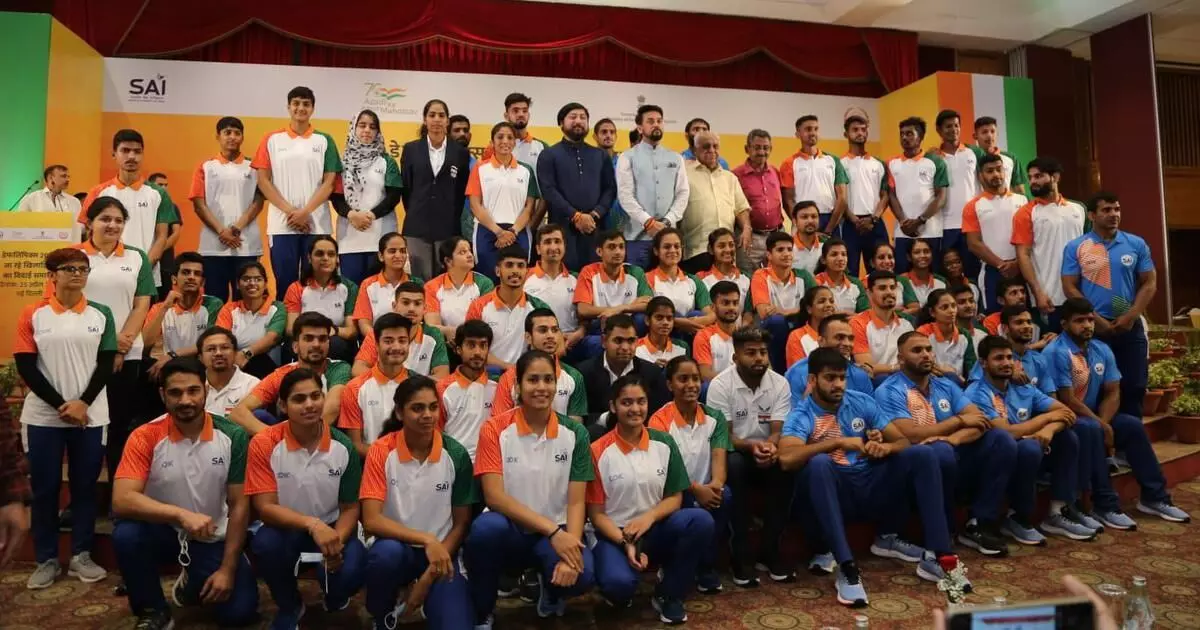Sports and Culture
Why should we follow India's campaign at Deaflympics
India has a rich history in Deaflympics with 39 medals so far. With 65 athletes set to compete in 11 different sports, this is India's largest-ever contingent at the Deaflympics.

The Deaflympics has a distinct record of being the longest-running sports event in the world after the Olympics. It brings together thousands of athletes from across the world who compete in a range of different team and individual sports.
The most fascinating part of this entire mega-sports event is that the athletes compete without virtually any assistance or external help. They play to the same rules as normal sports with minor moderations and regulations in place for the sake of organisational convenience.
India has competed at the Deaflympics since 1965 having accumulated a tally of 39 medals since then.
A total of 65 Indian athletes have gone to Brazil as part of the country's largest-ever contingent to represent at the mega sports event. There are a few reasons why we should back these talented individuals on their journey to success.
Continued success and resilience
Former Indian Deaflympian Rajeev Bagga (currently an English citizen) has won a total of 16 medals at the Deaflympics for India in badminton. His tally includes 14 gold, 1 silver and 1 bronze medal from 1989 onwards till the 2013 Deaflympics. Bagga also has the unique distinction of being pronounced as the 'Deaflympian of the Century' due to achievements at the Deaflympics over the years. He has singlehandedly put India on the road map of Deaflympic's success by proving the potential for the excellence of the country time and again.
Another athlete who will be competing in Brazil this year is freestyle wrestler Virendra Singh. He has won 3 gold and 1 bronze medal for India across the previous 4 editions of the game and will be looking to continue his streak for the 5th time. He will be joined by Diksha Dagar, the Olympian golfer who won silver at the 2017 Deaflympics. Ajay Kumar and Rohit Bhaker are two others who will be looking to repeat their success at the 2017 Deaflympics.
Several deaf Indian athletes have had to brave multiple personal failures, administrative hiccups, complacency by sports authorities and numerous other challenges due to the lack of recognition they receive. Their resilience, however, continues to be on display year after year and the Deaflympics is another opportunity for them to truly showcase their hard work and dedication over the years.
An interesting watch
One of the most prominent aspects of the event is that the rules of sports at the Deaflympics are mostly similar to normal sports events held at the Olympics. There is virtually no assistance provided to the competing athletes since they are expected to navigate the particular sports event on their own. However, there are certain modifications made to the individual's games based on requirements.
Since all athletes who compete at the Deaflympics have a hearing loss of at least 55 decibels in the better ear, the use of in-game announcements, starting guns, foul call mics and other frequently used modes of communication are not allowed. Referees and umpires need to utilise sign language and visual modes of communication to get through to the athletes.
Another unique aspect is that of the classification of functional abilities. This works on the similar line of 'weight categories' that allows athletes with similar abilities to compete together. It is interesting to see how these athletes navigate their personal events in a bid to be the best while preserving the ideals of healthy competition and integrity of the Deaflympics.
India's all-time medal record
A key aspect of India's performance in mega sports events like the Olympics is that there is a considerable lack of success on the medal front. The common comparison is that a country of 1.3 billion cannot produce enough medalists on the world stage. This issue however is not that prominent in the Deaflympics where India sits 28th on the all-time medal list.
With 18 gold, 8 silver and 13 bronze medals to its name, India has amassed 39 medals at the Deaflympics since 1965. It makes for a great reading since there have been considerable issues with funding, administrative regulations and a general lack of awareness surrounding the rights and opportunities of deaf athletes in India. The ongoing event in Brazil will definitely see more medals coming India's way.
With the event having already commenced, the next 15 days shall prove to be both interesting and exciting for all Indian sports fans. The Deaflympics is just another reminder of India's potential to excel in international multi-sport events and is an opportunity for our athletes to exceed all expectations. Moreover, it is also an event that puts on display the grit, perseverance and courage of numerous Indians who have had to tread difficult paths to get to where they are today.
